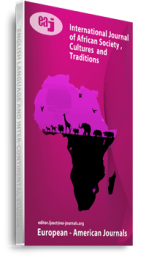From the pre-colonial era to date (2015) the challenge of capital formation (finance) among Africans, especially those in the rural communities, cannot be overemphasized. Lack of capital adversely affected the growth of economic activities, which also negatively impacted on the standard of living of the people, leading to inequality, unemployment, and poverty, among others. In Nigeria, colonial and successive governments tried to address this issue without success. They established different types of financial institutions, which more or less served the interests of minority government officials, government employees, elite, and other such groups in the country. For the Igbo of Nigeria, credit contribution clubs were, and still are, veritable sources of capital formation, even before the emergence of colonial rule. In the face of economic challenges, especially in the area of capital formation, credit contribution clubs (Isusu) have been widely used to access funds over modern finance institutions (Banks, Stock exchange, and others). The focus of this work is to bring to the fore the indigenous institution, Isusu, which have been source for pooling capital (funds) for the benefit of the members. The popularity of this informal institution for capital formation amongst the people, even the successful elite, in our area of study will be emphasized. The paper concludes that contribution clubs (Isusu) is one of the non-agrarian pre-colonial institutions for capital formation that contributed immensely to the development of the economic activities of Igbo people. The scope of this paper is the Igbo of Southeast Nigeria. The approach adopted and in writing this work are the descriptive and analytical method. The period covered by the paper is between 1900 and 2015.
Keywords: Capital Formation, Fund, Indigenous, Institution, contribution clubs, pre-colonial, veritable

